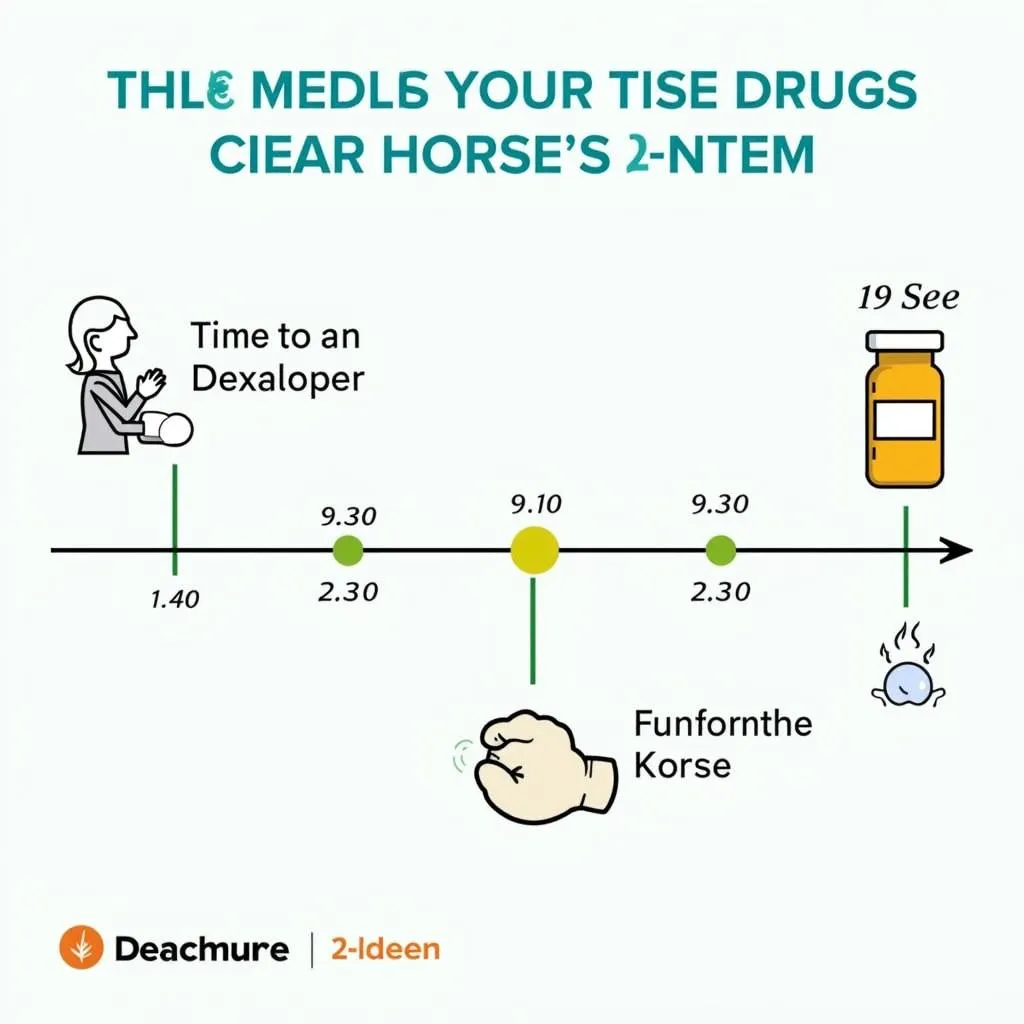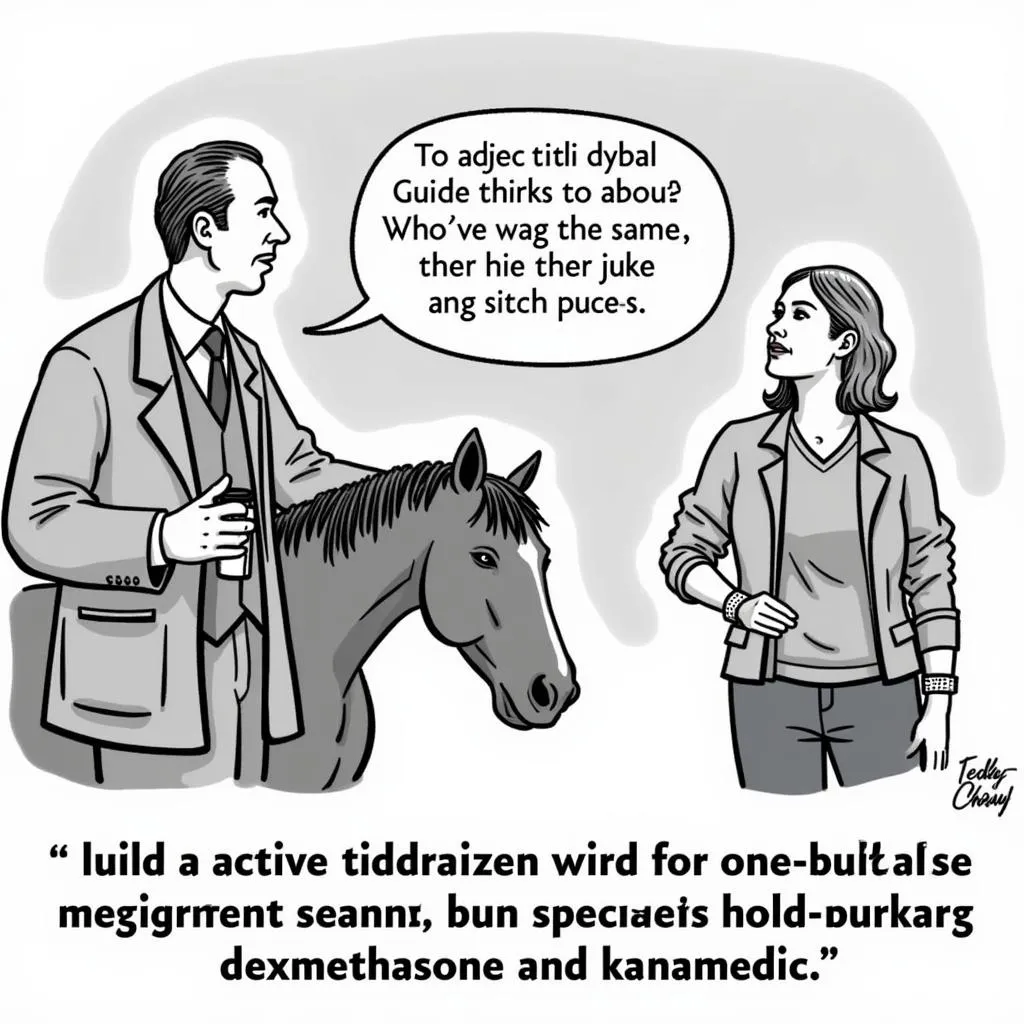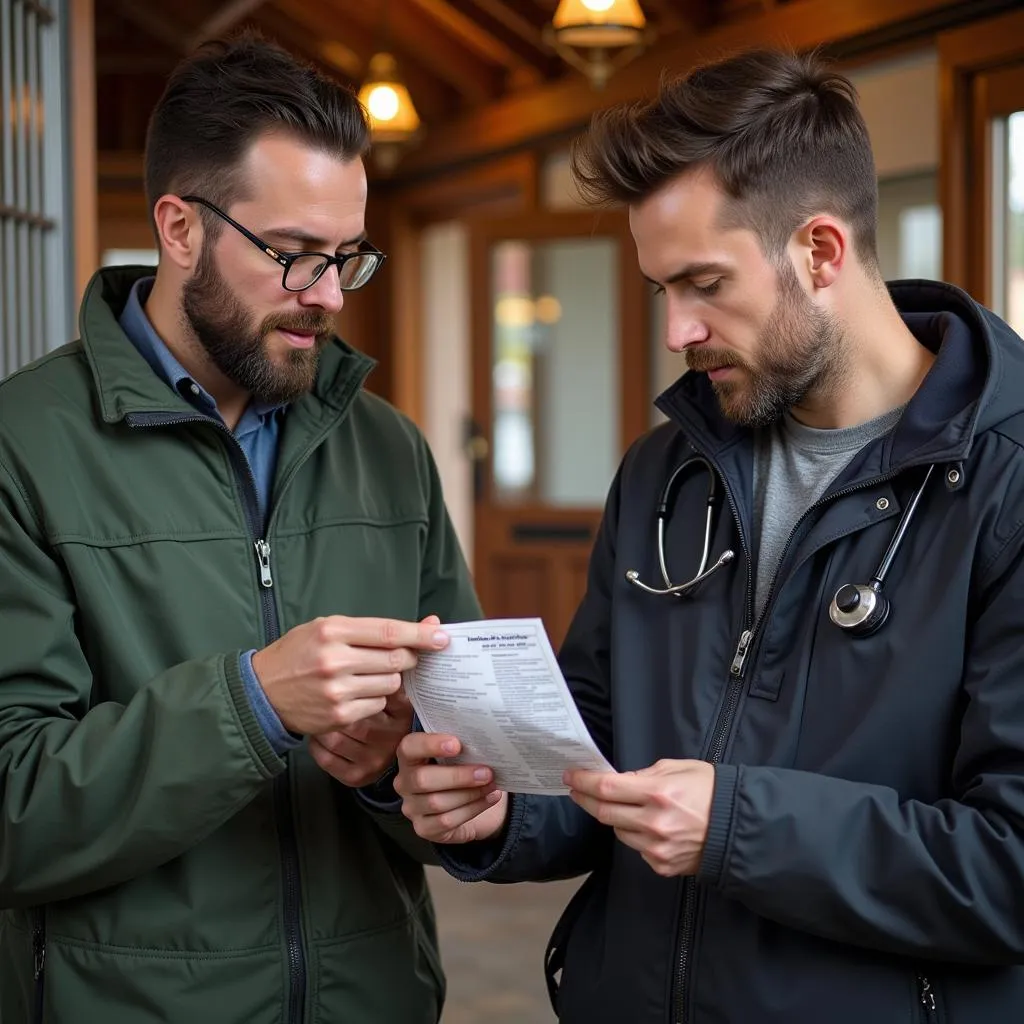Dk Horse Withdrawal is a term that can cause concern for horse owners, particularly those unfamiliar with the intricacies of equine medications. This comprehensive guide will delve into the specifics of DK horse withdrawal, providing clarity and guidance on navigating this crucial aspect of equine care.
What is DK Horse Withdrawal?
DK horse withdrawal refers to the period after administering a medication containing dexamethasone and kanamycin to a horse, during which traces of the drugs may still be present in the horse’s system. This period is critical because the presence of these drugs can lead to complications, especially if the horse is competing or undergoing specific veterinary procedures.
The Importance of Understanding DK Horse Withdrawal
Understanding DK horse withdrawal is not just about adhering to regulations; it’s about safeguarding your horse’s health and well-being. Failing to observe the withdrawal period can have serious consequences:
- Positive drug tests: Competing with a horse that has not completed its DK withdrawal period can lead to disqualification and potential penalties.
- Health complications: Certain medications or procedures might interact negatively with residual dexamethasone or kanamycin, putting your horse’s health at risk.
 DK Horse Medication Withdrawal Timeline
DK Horse Medication Withdrawal Timeline
Factors Affecting DK Horse Withdrawal Time
While general guidelines exist, the exact DK horse withdrawal time can vary based on several factors:
- Dosage: Higher doses generally require longer withdrawal times.
- Frequency of administration: Frequent or prolonged administration can extend the withdrawal period.
- Individual metabolism: Horses, like humans, metabolize drugs at different rates.
- Drug formulation: The specific formulation of the medication can influence its absorption and elimination.
Navigating DK Horse Withdrawal: Best Practices
- Consult your veterinarian: Your vet is your best resource for determining the appropriate DK withdrawal time for your horse based on its medical history and the specific medication used.
- Keep meticulous records: Maintain detailed records of all medications administered to your horse, including dates, dosages, and withdrawal times.
- Plan ahead: If you plan to compete with your horse or schedule a veterinary procedure, factor in the DK withdrawal period well in advance.
- Communicate clearly: Ensure all individuals involved in your horse’s care, including trainers and farriers, are aware of any medications and withdrawal periods.
 Veterinarian Discussing DK Horse Withdrawal with Owner
Veterinarian Discussing DK Horse Withdrawal with Owner
What if I Accidentally Compete During the Withdrawal Period?
Honesty is always the best policy. If you discover you’ve unknowingly competed during the DK withdrawal period, contact the relevant equestrian organization immediately. Transparency and proactive communication can mitigate potential penalties.
DK Horse Withdrawal: Prioritizing Your Horse’s Health
DK horse withdrawal is not merely a regulatory hurdle; it’s a critical aspect of responsible horse ownership. By understanding the principles and best practices, you contribute to the well-being of your equine partner and uphold the integrity of equestrian sport.
Frequently Asked Questions About DK Horse Withdrawal
1. Can I shorten the DK horse withdrawal time?
No, attempting to shorten the withdrawal period can be detrimental to your horse’s health and may result in a positive drug test.
2. What are the signs of an adverse reaction to dexamethasone or kanamycin?
Signs can include swelling at the injection site, colic, diarrhea, and behavioral changes. If you observe any of these signs, contact your veterinarian immediately.
3. Can I use a different medication with a shorter withdrawal time?
Discuss alternative medication options with your vet. They can recommend suitable alternatives based on your horse’s specific needs and the intended use.
 Horse Owner Checking Medication Label with Veterinarian
Horse Owner Checking Medication Label with Veterinarian
4. Are there any natural alternatives to medications containing dexamethasone and kanamycin?
While natural options exist for certain conditions, they might not be suitable replacements in all cases. Consult your veterinarian to explore potential alternatives.
5. Where can I find more information about DK horse withdrawal regulations?
Your national equestrian federation or governing body is the best resource for up-to-date regulations concerning medication control and withdrawal times.
Need more information or assistance with your horse’s health? Contact our dedicated team at Justus Horses USA:
Phone: 0772127271
Email: [email protected]
Visit us: QGM2+WX2, Vị Trung, Vị Thuỷ, Hậu Giang, Việt Nam.
We are here to support you 24/7.